
Golden Age Author Anthony Berkeley
Brook and Sarah explore the life and writing of Golden Age author Anthony Berkeley, founder of the Detection Club and author of several novels under different pen names.
Discussed
The Layton Court Mystery (1925) Anthony Berkeley (originally published as by "?")
The Winteringham Mystery (1927) Anthony Berkeley (originally published as by A. Monmouth Platts)
The Poisoned Chocolates Case (1929) Anthony Berkeley
Murder in the Basement (1932) Anthony Berkeley
The Red House Mystery (1922) A.A. Milne
The Hunting Party (2018) Lucy Foley
The Guest List (2020) Lucy Foley
The Wychford Poisoning Case (1926) Anthony Berkeley (originally published as "by the author of The Layton Court Mystery)
Magpie Murders (2016) Anthony Horowitz
The Golden Age of Murder (2015) Martin Edwards
Before the Fact (1932) Anthony Berkeley (originally published as by Francis Iles)
Suspicion (1941 film) Alfred Hitchcock
Malice Aforethought (1931) Anthony Berkeley (originally published as by Francis Iles)
Trial and Error (1937) Anthony Berkeley
Flight from Destiny (1941 film) Vincent Sherman
For more information
Instagram: @cluedinmystery
Contact us: hello@cluedinmystery.com
Music: Signs To Nowhere by Shane Ivers – www.silvermansound.com
Sign up for our newsletter: https://cluedinmystery.com/clued-in-chronicle/
Join the Clued in Cartel: https://cluedinmystery.com/clued-in-cartel/
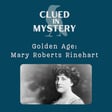
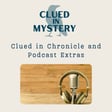
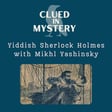
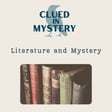
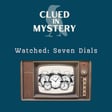
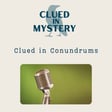
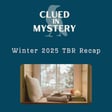
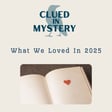
![[Re-release] Anthony Berkeley image](https://media.zencastr.com/cdn-cgi/image/width=112,quality=85/image-files/61e1c276e3ec42007857cff9/e7c778ac-a2ba-4809-9a5c-7cd39d167834.jpg)
![[Bonus] Wake Up Dead Man image](https://media.zencastr.com/cdn-cgi/image/width=112,quality=85/image-files/61e1c276e3ec42007857cff9/e276ac32-e664-464f-956c-7699bdb60aa5.jpg)
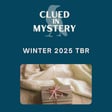

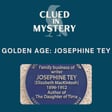
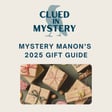
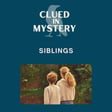

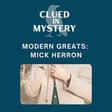
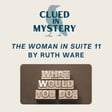
![[Bonus] Read Along: Daughter of Time image](https://media.zencastr.com/cdn-cgi/image/width=112,quality=85/image-files/61e1c276e3ec42007857cff9/b953ad72-c43e-48ca-a18a-b3c216ab90ee.jpg)
